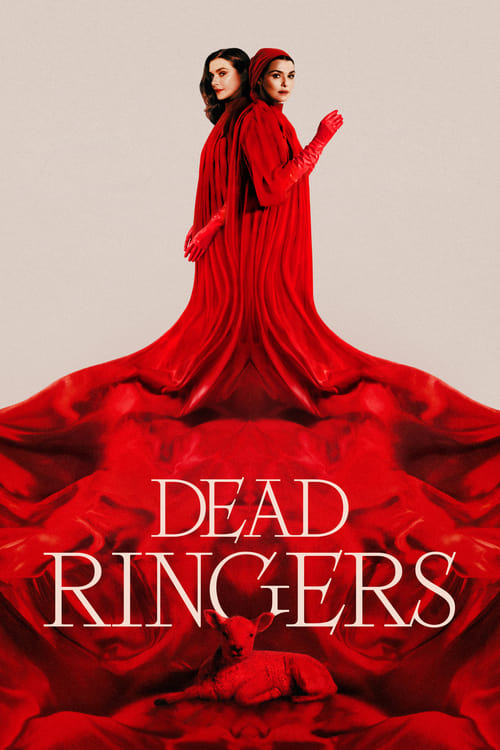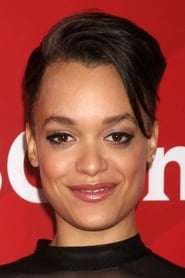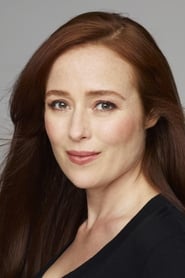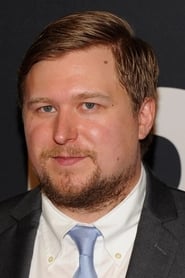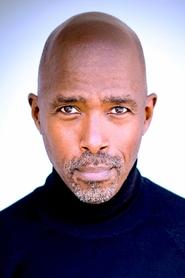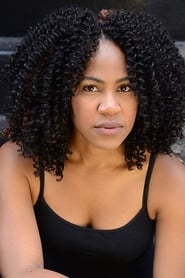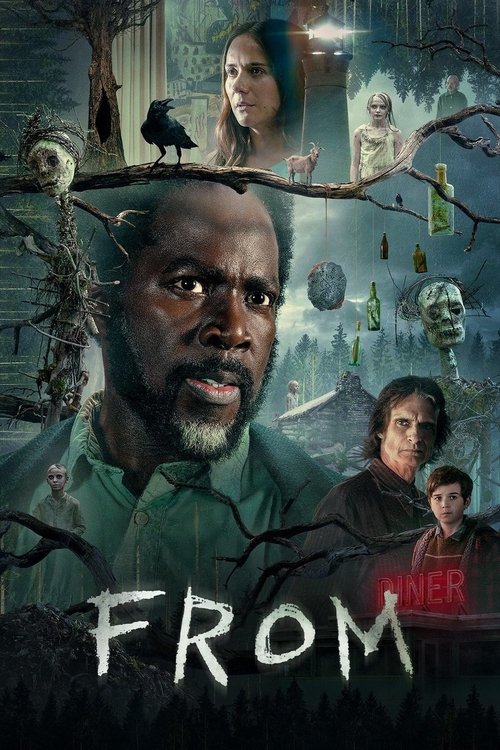
Ask Your Own Question
What is the plot?
The Mantle twins, Elliot and Beverly, are identical gynecologists working at Westcott Memorial Hospital in Manhattan. They are renowned for their innovative approaches to reproductive medicine and are planning to open their own birthing center and research lab. Elliot is ambitious, driven by scientific discovery, and eager to cater to wealthy clients who can fund her research. Beverly is more empathetic, focused on making reproductive care accessible to all women, regardless of socioeconomic status. Their relationship is deeply codependent, and they operate as a single unit in both their professional and personal lives.
At the hospital, the twins attend to a variety of patients, including a Black mother who dies from complications after her white doctor fails to order a necessary CT scan, despite Beverly's insistence. Beverly confronts the doctor, but the incident highlights the systemic failures in maternal care. The twins also treat a surrogate mother whose baby is breech. The biological mother, Lara, is domineering and repeatedly interrupts Beverly's attempts to help, demanding to know when she can use the surrogate again. Beverly tells Lara to be quiet, but Lara insists she is the patient. Beverly argues that their future birthing center would not exist to allow wealthy women to exploit poorer ones.
The tension between Elliot and Beverly grows as they debate the direction of their new facility. Elliot wants a research lab funded by wealthy clients, while Beverly wants a birthing center open to all. Their differing visions create friction, but they continue to work together, maintaining their public image as a unified team. Beverly begins a romantic relationship with Gilda, a woman she meets at a party. This relationship unsettles Elliot, who feels threatened by the intrusion into their previously closed world. Beverly's growing independence causes Elliot to feel increasingly isolated and resentful.
Elliot begins to spiral, engaging in risky behavior and experimenting with drugs. She becomes obsessed with a new fertility treatment she is developing, which she believes will revolutionize reproductive medicine. Beverly tries to intervene, but Elliot pushes her away, insisting that her work is too important to be compromised by Beverly's concerns. Elliot's experiments become more extreme, and she starts to lose touch with reality. She begins to see visions of Beverly, blurring the lines between her own identity and her sister's.
Beverly discovers that Elliot has been conducting unauthorized experiments on patients, including the surrogate mother. She confronts Elliot, demanding that she stop, but Elliot refuses, claiming that the ends justify the means. Beverly threatens to expose Elliot's actions, but Elliot manipulates her, playing on their shared history and codependency. Beverly is torn between her loyalty to her sister and her ethical obligations as a doctor.
Elliot's mental state deteriorates further. She begins to hallucinate, seeing Beverly in multiple places at once. She starts to believe that Beverly is trying to sabotage her work and that she must protect her research at all costs. Elliot's behavior becomes erratic and dangerous. She isolates herself, cutting off contact with Beverly and the outside world. Beverly tries to reach out, but Elliot refuses to listen.
Beverly decides to take action. She gathers evidence of Elliot's unauthorized experiments and prepares to report her to the hospital administration. Before she can do so, Elliot discovers what Beverly is planning. In a fit of rage and paranoia, Elliot confronts Beverly at their shared apartment. The confrontation escalates into a violent struggle. Elliot attacks Beverly, accusing her of betrayal and trying to destroy everything they have built together. Beverly fights back, but Elliot overpowers her and locks her in a room.
Elliot continues her experiments, now completely unhinged. She injects herself with the experimental fertility treatment, believing it will give her the power to control life and death. The treatment has severe side effects, causing her to experience intense hallucinations and physical pain. She becomes convinced that she is transforming into something new, something beyond human.
Beverly manages to escape from the room and calls for help. The police arrive and find Elliot in a state of delirium, surrounded by medical equipment and evidence of her experiments. Elliot is arrested and taken to a psychiatric facility. Beverly is left to deal with the aftermath, grappling with the loss of her sister and the destruction of their shared dream.
The series ends with Beverly reflecting on their relationship and the choices they made. She visits Elliot in the psychiatric facility, but Elliot is unresponsive, lost in her own world. Beverly realizes that their codependency and ambition ultimately led to their downfall. She decides to move forward, determined to honor their legacy by continuing to fight for accessible reproductive care, but on her own terms.
What is the ending?
Short, Simple Narrative of the Ending:
In the final moments of the 2023 TV series Dead Ringers, Beverly Mantle, pregnant with twins, asks her sister Elliot to help her die so Elliot can take over her life and raise the babies. Elliot performs a C-section on Beverly, letting her bleed out, and then assumes Beverly's identity. Beverly dies, and Elliot becomes the new Beverly, raising the twins and continuing Beverly's legacy. In a post-credits scene, Elliot attends a grief counseling group for people who have lost siblings, revealing Beverly had been planning her exit for years.
Expanded Chronological Narrative of the Ending:
The final episode opens with Beverly Mantle living independently for the first time, having severed ties with her twin sister Elliot. She is now the head of the Mantle birthing center, which is thriving. Beverly has recently given birth to twins and is being celebrated for her professional accomplishments. At a dinner with Rebecca, Genevieve, and others, she is praised for her success and resilience. The atmosphere is one of triumph, but Beverly is visibly distant and unhappy. She is haunted by Elliot's absence, seeing her sister's face in strangers and in mirrors, and is unable to shake the feeling that something is missing.
Rebecca informs Beverly that a journalist named Silas is about to publish a damaging exposé about Elliot, detailing her drug use, unethical research, and possible involvement in the death of a homeless woman. Rebecca and Genevieve urge Beverly to publicly distance herself from Elliot to protect her reputation and the clinic. Beverly hesitates, but ultimately agrees. At an awards ceremony that evening, Beverly takes the stage and delivers a speech in which she denounces Elliot, calling her "unwell" and "destructive," and formally severs all ties with her sister. The audience applauds, but Beverly looks devastated.
After the ceremony, Beverly returns home, still pregnant with twins. She is alone, and the sound of a ringing phone echoes through the house. Elliot's voice can be heard calling out to her, "Baby sister," but it is unclear if this is a memory, a hallucination, or a real call. Beverly is consumed by grief and longing for her sister. She contacts Elliot and confesses that she cannot live without her. She tells Elliot that she has always believed there should have been only one of them, and that Elliot has always been the better version of herself.
Beverly reveals that she wants Elliot to take over her life and raise her twins. She asks Elliot to help her die so that Elliot can assume her identity and continue her work without the burden of Elliot's dark past. Elliot agrees. In a harrowing scene, Elliot performs a C-section on Beverly, delivering the twins. Beverly bleeds out from the procedure and dies in Elliot's arms. Elliot then cuts a long incision across her own stomach, mirroring the C-section, and secures her hair in a ponytail, symbolically becoming the new Beverly Mantle.
The final scene shows Elliot, now living as Beverly, raising the twins and running the birthing center. She is calm and composed, but there is a sense of unease. In a post-credits sequence, Elliot attends a grief counseling group for people who have lost siblings. The counselor asks her to share her story, and Elliot begins to speak. It is revealed that Beverly had been attending these meetings for years, preparing for her eventual death and ensuring that Elliot would have an alibi and a way to process her loss.
Fate of Each Main Character:
-
Beverly Mantle: Dies after Elliot performs a C-section on her, allowing Elliot to take over her life and raise her twins. Beverly's death is both literal and symbolic, representing her inability to live without her sister and her desire to erase her own identity.
-
Elliot Mantle: Survives and assumes Beverly's identity, raising Beverly's twins and continuing her work at the birthing center. Elliot's transformation is complete, but she is left to grapple with the consequences of her actions and the loss of her sister.
-
Genevieve: Leaves for a new job, ending her relationship with Beverly. She is not present at the final events but is mentioned as having moved on.
-
Rebecca: Remains a supportive figure, urging Beverly to protect her reputation and the clinic. She is present at the dinner and the awards ceremony but does not play a direct role in the final events.
-
Silas: The journalist whose exposé threatens to expose Elliot's past. His article is published, but the damage is mitigated by Beverly's public denouncement of Elliot.
The ending of Dead Ringers is a powerful exploration of identity, codependence, and the lengths to which people will go to escape their own lives. The series concludes with a shocking twist that challenges the audience's understanding of the characters and their relationships, leaving a lasting impression of the twins' tragic bond.
Is there a post-credit scene?
Yes, the 2023 TV series Dead Ringers features a post-credits scene that adds a significant and unsettling twist to the ending. The scene takes place in what appears to be Central Park, where Elliot, now living as Beverly, is sitting on a bench with Genevieve and the twins. Genevieve steps away to get drinks, leaving Elliot momentarily alone with the babies.
A woman approaches Elliot, congratulating her on the birth of her twins and mentioning that she knows her from a bereavement group. The woman reveals that Beverly had been attending grief counseling for years, where she spoke about her twin sister's death in an accident. Elliot is visibly shocked by this revelation, as it implies that Beverly had been planning the identity switch for a long time, using the counseling sessions as part of her elaborate scheme.
When Genevieve returns, Elliot brushes off the stranger and tells Genevieve that the woman thought she was her sister. Genevieve looks uncomfortable but does not realize that she is actually sitting next to Elliot, who is now living as Beverly. The scene then cuts to a boardroom meeting where a man greets Elliot as Beverly and asks her to talk about her sister, leaving Elliot dumbfounded as she realizes the extent of Beverly's plan.
This post-credits scene serves as a creepy and thought-provoking conclusion, suggesting that Beverly's actions were part of a much larger, long-term plan, and leaving viewers with a sense of unease about the true nature of the twins' relationship and the future of Elliot's new life as Beverly.
What is the nature of the relationship between the Mantle twins, Elliot and Beverly, in the first episode of Dead Ringers (2023)?
In Episode 1, Elliot and Beverly Mantle are twin gynecologists with contrasting personalities and ambitions. They share a close but tense relationship, with Elliot being more individualistic, indulging in drugs and casual sex, while Beverly is more focused on their shared goal of opening a birthing center. Their dynamic is complex, involving moments of cooperation and conflict, such as when Beverly interrupts Elliot's hookup to insist they leave a club. They also differ in their visions for their future practice, with Beverly wanting a birthing center open to all, and Elliot craving a research lab funded by wealthy clients.
What specific medical and ethical challenges do the Mantle twins face in their work as depicted in the series?
The Mantle twins encounter intense medical situations, including high-risk pregnancies and surrogacy, illustrated by a scene where Beverly manually turns a breech baby while dealing with a demanding surrogate's biological mother. Ethical tensions arise around patient care and exploitation, such as the surrogate's disregard for her own health and the wealthy clients funding their work, which Elliot favors. Additionally, Elliot engages in controversial and illegal experiments on human embryos, causing panic and conflict with Beverly, highlighting the moral complexities in their medical practice.
How does the series portray the psychological and emotional states of Elliot and Beverly throughout the story?
The series delves deeply into the twins' psychological struggles and emotional interdependence. Beverly experiences trauma and distress, including a miscarriage and childhood memories linked to haunting figures, which manifest in sleepwalking and visceral reactions. Elliot exhibits a voracious appetite for sex, drugs, and scientific experimentation, often pushing ethical boundaries. Despite Beverly's attempts to distance herself, she remains emotionally tethered to Elliot, culminating in a fraught and codependent relationship that blurs identity and survival.
What is the significance and outcome of the twin-swap plan between Elliot and Beverly in the series finale?
In the series finale, the twins devise a plan for an ultimate twin swap: Elliot will assume Beverly's identity after Beverly dies, thereby escaping the consequences of Elliot's dark past. Elliot performs a C-section to deliver Beverly's babies and then lets Beverly die from the resulting trauma and blood loss. Elliot then takes on Beverly's identity, including her appearance and life, to secure the ruse. This twist differs from the original film's ending and underscores themes of identity, survival, and sacrifice within their toxic bond.
How does the series depict the impact of the Mantle twins' work on their patients, particularly in relation to race and class?
The series portrays childbirth and medical care with stark realism and social critique. It shows the horrors of childbirth, including a Black mother dying from medical neglect despite Beverly's warnings. The twins' birthing center dream is complicated by class and racial dynamics: Beverly wants an inclusive center, while Elliot caters to wealthy clients who fund their research, such as a domineering white woman using surrogacy to control reproduction. These elements highlight systemic inequalities and the exploitation embedded in their medical environment.
Is this family friendly?
Dead Ringers (2023) is not family friendly and is intended for mature audiences. The series contains graphic and potentially upsetting content that may be disturbing for children or sensitive viewers.
Notable aspects include: - Frequent explicit scenes of female genitalia shown in graphic medical contexts, including childbirth and surgical procedures. - Moderate to severe violence and gore, including depictions of medical injuries and bloody situations. - Strong sexual content, including scenes of threesomes, explicit sexual dialogue, and passionate same-sex encounters. - Strong profanity throughout the series. - Scenes involving drug use and alcohol consumption. - Intense and disturbing psychological themes, including medical ethics dilemmas and emotionally charged situations.
These elements make the show unsuitable for younger audiences or those sensitive to graphic medical, sexual, or violent content.

